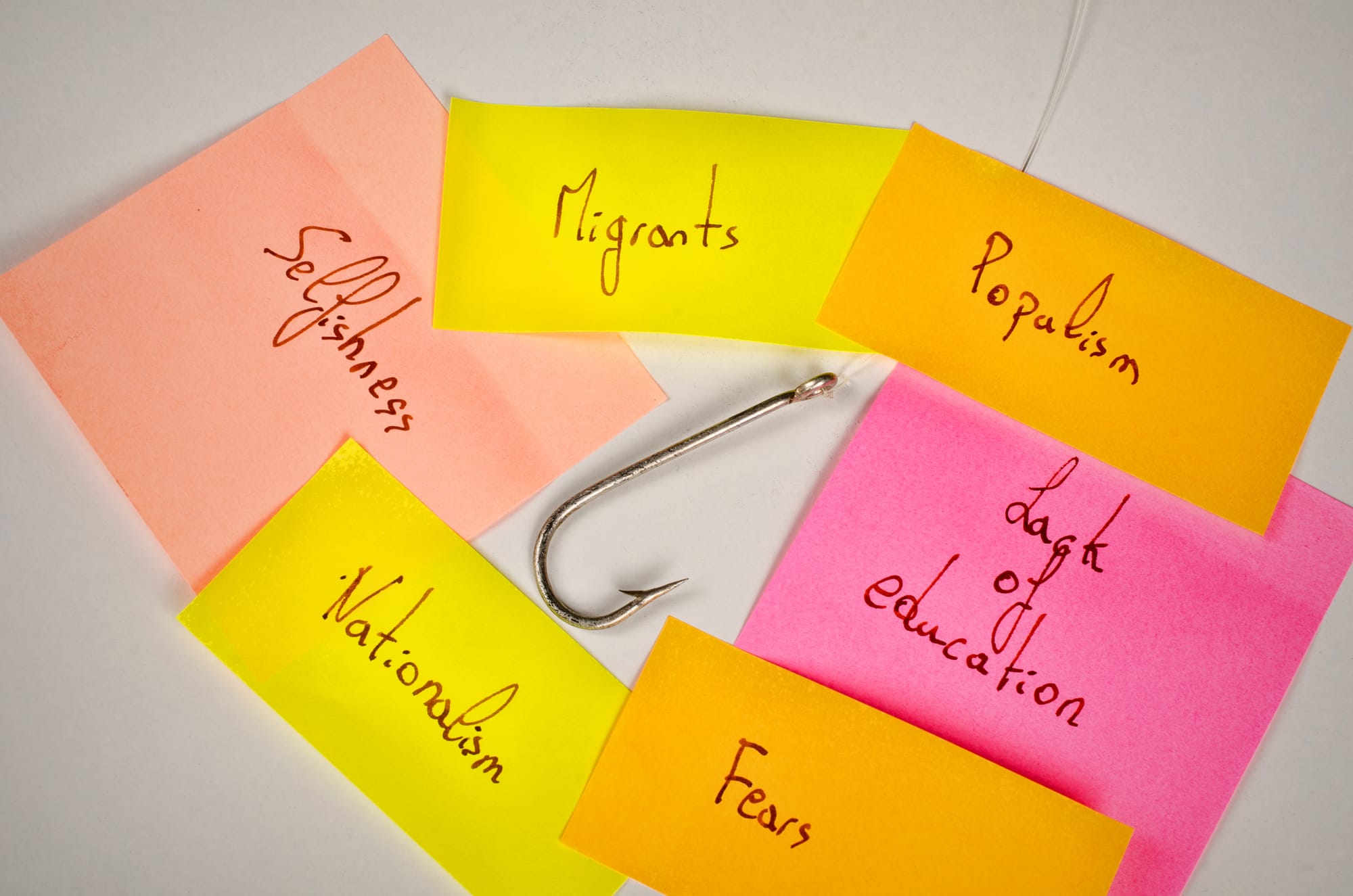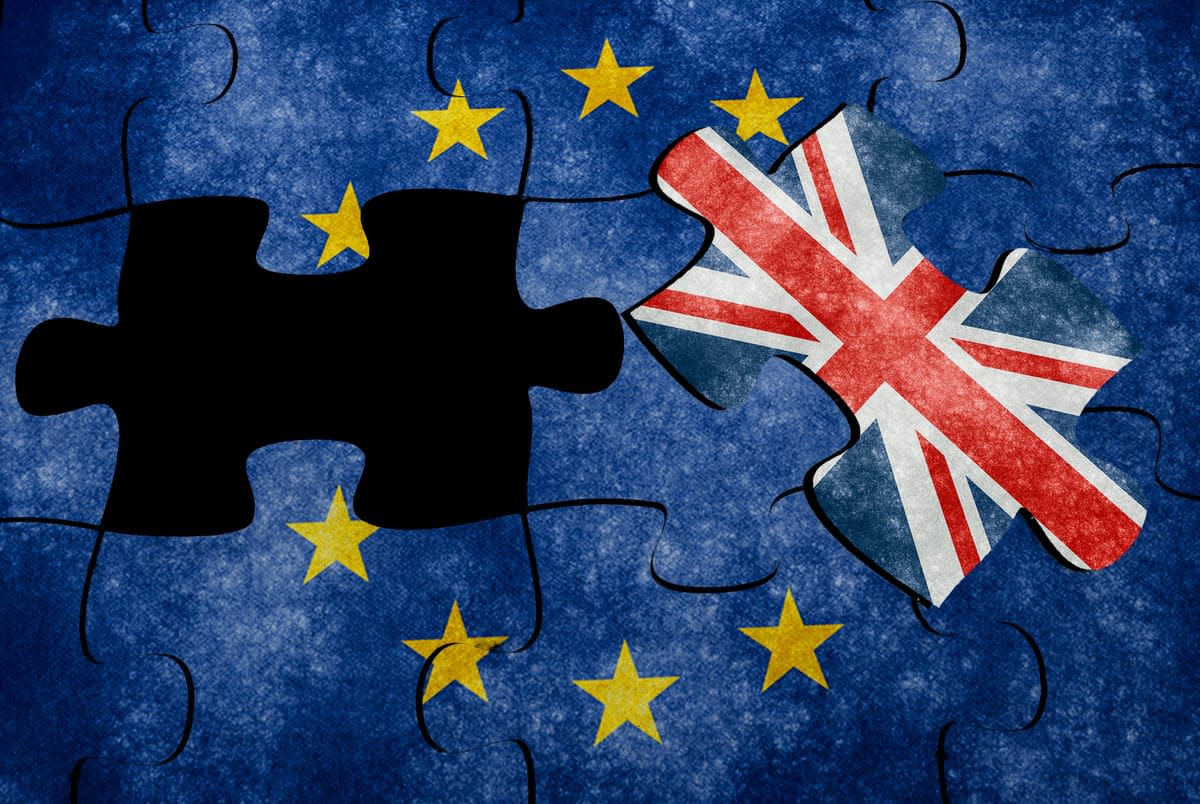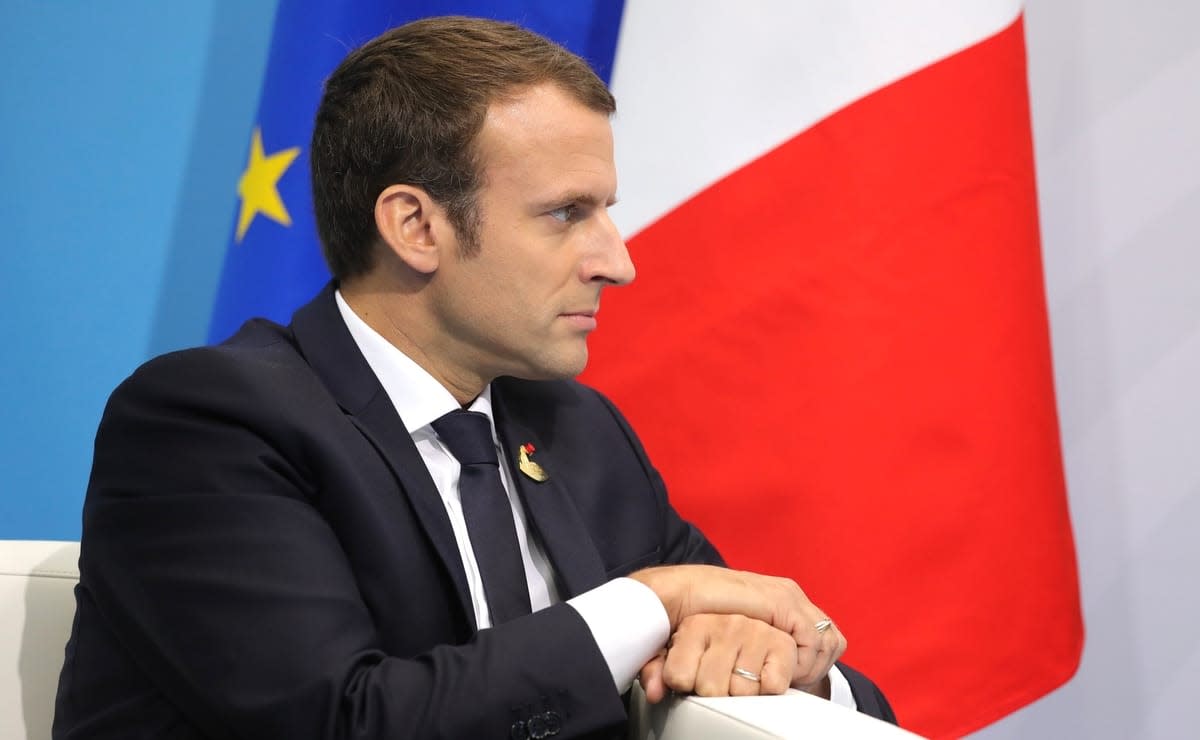
Political systems are under pressure throughout the West. In Europe, Brexit and the "yellow vest" protests in Paris are symptoms of the same economic and cultural divide that delivered the US presidency to Donald Trump, and has allowed One Nation to persist in Australia.
“Populist leaders give simple answers – it’s the European Union’s fault, it’s the migrants, let’s close the borders, let’s re-establish protectionism,” says Dr Natalie Doyle, deputy director of the Monash European and EU centre. “And the answers they offer are not really adapted to the scale of the problem. Just give them five or 10 years and nothing will have changed, and the population will have realised that no, the populist claims were just a mirage," she says.
“But the problem is – populist leaders are the only ones who are admitting there is a problem. Political elites and the media have been too quick to condemn those feelings of discontent from sectors of the population. They say they're racist, or xenophobic, or Luddites.”
Crisis ramps up
The Brexit crisis reached a crescendo in December, challenging the authority of British Prime Minister Theresa May, while across the channel thousands of citizens from outside Paris poured into the capital, protesting against French President Emmanuel Macron’s austerity program.
May is yet to present her final Brexit deal to the British Parliament. She faltered at the 11th hour, having assessed that the bill faced defeat, and then travelled to Europe in a doomed attempt to achieve greater concessions.

On her return to the UK, she survived a no-confidence motion from her own party, while the 500-page agreement she brokered remains in limbo. If a deal isn't passed into law before 29 March, Britain faces the prospect of a “no deal”. Another option is a second referendum, which the Prime Minister has ruled out.
“The EU was conceived in such a way that nothing was planned that allowed a country to get out,” Dr Doyle says. “It’s completely unknown territory. There's not a lot of flexibility with the EU if you stay in it, and if you try to get out of it, there's no road map.”
May might still be PM, but “virtually everyone” is unhappy with her agreement, Dr Doyle says. The “hard Brexit” camp is aghast that the border between Ireland and Northern Ireland will remain open for an unspecified period, allowing goods and services to be traded with few restrictions. Other treaty obligations also remain, including financial obligations that could reach 60 billion euros (conservative estimates say they will be closer to 40 to 45 billion euros), not including 14 billion euros in outstanding loans.
“So within the UK, the Brexit people are saying that it’s not a real Brexit, not what they voted for,” Dr Doyle says. “On the other side, those who didn't want the UK to leave say now we're not going to get the best of both worlds but the worst of both worlds.”
Failure no surprise
May’s failure to achieve better terms during her December dash to the continent was “totally expected”, Dr Doyle says. “What's interesting from a French perspective is that Macron was excluded from the discussions with May.”
The reason was the yellow vest protests, and the concessions the President made to achieve peace on the streets at home. While this may have made political sense within France, it weakened Macron’s position in Europe, and destroyed his prospects of reforming the EU.
“He's seen to have reneged on his commitment – as all French presidents have – to cut down the budget deficit and abide by austerity principles,” Dr Doyle says.
In Germany and other northern European countries, Macron has been denounced for not holding the line. And in France he's seen as out of touch and arrogant for imposing austerity measures on those who could least afford them.
Macron is seen to have reneged on his commitment – as all French presidents have – to cut down the budget deficit and abide by austerity principles.
The people who took to the streets of Paris are the French citizens left behind by a globalised economy, Dr Doyle says. In France they're called “the periphery” because they live in poorly serviced semi-rural areas or on the edge of the cities, where they're forced to dwell because of rising prices in the city centres.
Those who live on the periphery need cars to go to work and to access services. Macron’s economic program had already seen cuts to pensions and to housing assistance. The catalyst for the Paris protests was a fuel tax, which was seen as a step too far.
“We can see this great divide that has developed across the Western world,” Dr Doyle says. “There's been a return of inequalities. And we have seen that the lower-middle class is slipping down … so you have a whole chunk that used to be the middle class, and used to support centrist politics, which is now becoming impoverished and very anxious about its future.”
Adjustment difficulties
Unfortunately, within the Eurozone it's difficult for countries to adjust their economic policies to help those people who haven't been able to adapt to the rapid technological and cultural changes of a globalised world, she says.
Part of Macron’s pitch during his presidential bid was that austerity measures would go hand in hand with European Union reforms. But rather than arguing for greater autonomy for individual countries, his vision was for even greater integration within the Eurozone, with a new body overseeing economic policy throughout the bloc. This body would provide growth stimulus for the regions that needed it the most.
The grand vision was stymied first of all because Macron underestimated the depth of the social divide in France, Dr Doyle says. Many problems experienced by those on the periphery are local and particular.

She says in rural France, for example, Marine Le Pen’s National Front party predictably gained followers whenever a post office was closed. “In some tiny little places, the post office was the only public service that was there, and a representation of the state.”
Its closure was further proof that the state was abandoning them.
Macron also underestimated the resistance against his vision from other Eurozone nations. Germany and a cluster of countries around Germany have refused to get on board.
“We have the European elections in late May next year,” Dr Doyle says. “There is an attempt on the part of centre left and socialist activists to create a unified European force, to push in the direction that Macron wanted. But the results of the Italian elections, the rise of populism, not just in Italy but in Germany as well as other countries in the union, suggest that it may well be too late.”
Throughout Europe the economic discontent that fuelled Brexit and the yellow vest protests “has been channelled into nationalism, into protectionism, into hostility towards migrants,” she says.
Despite the migrant crisis, the EU lacks a coherent migrant policy, with the burden of caring for migrants falling disproportionately on the countries of the south. But introducing any reforms that are acceptable to the EU’s member states “requires long-term vision, and societies are becoming so fragmented that it's becoming more and more difficult – not only in Europe but across the Western world – to have majority governments,” she says.
“They have shaky coalitions, minority governments and so on, and when you have that, the only way you can survive is through the lowest common denominator, not some great vision. So they're caught – trying to adapt constantly, trying to tinker around the edges, and making little steps that they hope with time will be able to get them somewhere else. But can it? ”





